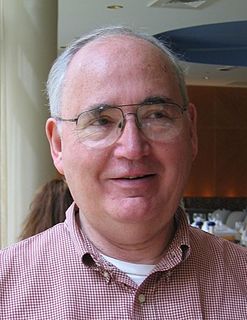Related Research Articles
In analytic philosophy, anti-realism is an epistemological position first articulated by British philosopher Michael Dummett which encompasses many varieties such as metaphysical, mathematical, semantic, scientific, moral and epistemic. The term was coined as an argument against a form of realism Dummett saw as 'colorless reductionism'.

Georg Wilhelm Friedrich Hegel was a German philosopher and the most important figure in German idealism. He is considered one of the fundamental figures of modern Western philosophy, with his influence extending to the entire range of contemporary philosophical issues, from aesthetics to ontology to politics, both in the analytic and continental tradition.

Truth is the property of being in accord with fact or reality. In everyday language, truth is typically ascribed to things that aim to represent reality or otherwise correspond to it, such as beliefs, propositions, and declarative sentences.

Dana Stewart Scott is an American logician who is the emeritus Hillman University Professor of Computer Science, Philosophy, and Mathematical Logic at Carnegie Mellon University; he is now retired and lives in Berkeley, California. His work on automata theory earned him the ACM Turing Award in 1976, while his collaborative work with Christopher Strachey in the 1970s laid the foundations of modern approaches to the semantics of programming languages. He has worked also on modal logic, topology, and category theory.
Metalogic is the study of the metatheory of logic. Whereas logic studies how logical systems can be used to construct valid and sound arguments, metalogic studies the properties of logical systems. Logic concerns the truths that may be derived using a logical system; metalogic concerns the truths that may be derived about the languages and systems that are used to express truths.
In programming language theory, semantics is the field concerned with the rigorous mathematical study of the meaning of programming languages. It does so by evaluating the meaning of syntactically valid strings defined by a specific programming language, showing the computation involved. In such a case that the evaluation would be of syntactically invalid strings, the result would be non-computation. Semantics describes the processes a computer follows when executing a program in that specific language. This can be shown by describing the relationship between the input and output of a program, or an explanation of how the program will be executed on a certain platform, hence creating a model of computation.

In logic, syntax is anything having to do with formal languages or formal systems without regard to any interpretation or meaning given to them. Syntax is concerned with the rules used for constructing, or transforming the symbols and words of a language, as contrasted with the semantics of a language which is concerned with its meaning.
Game semantics is an approach to formal semantics that grounds the concepts of truth or validity on game-theoretic concepts, such as the existence of a winning strategy for a player, somewhat resembling Socratic dialogues or medieval theory of Obligationes.

Robert Boyce Brandom is an American philosopher who teaches at the University of Pittsburgh. He works primarily in philosophy of language, philosophy of mind and philosophical logic, and his academic output manifests both systematic and historical interests in these topics. His work has presented "arguably the first fully systematic and technically rigorous attempt to explain the meaning of linguistic items in terms of their socially norm-governed use, thereby also giving a non-representationalist account of the intentionality of thought and the rationality of action as well."
In logic, the semantics of logic or formal semantics is the study of the semantics, or interpretations, of formal and natural languages usually trying to capture the pre-theoretic notion of entailment.
Proof-theoretic semantics is an approach to the semantics of logic that attempts to locate the meaning of propositions and logical connectives not in terms of interpretations, as in Tarskian approaches to semantics, but in the role that the proposition or logical connective plays within the system of inference.

Absolute idealism is an ontologically monistic philosophy chiefly associated with G. W. F. Hegel and Friedrich Schelling, both of whom were German idealist philosophers in the 19th century. The label has also been attached to others such as Josiah Royce, an American philosopher who was greatly influenced by Hegel's work, and the British idealists. A form of idealism, absolute idealism is Hegel's account of how being is ultimately comprehensible as an all-inclusive whole. Hegel asserted that in order for the thinking subject to be able to know its object at all, there must be in some sense an identity of thought and being. Otherwise, the subject would never have access to the object and we would have no certainty about any of our knowledge of the world. To account for the differences between thought and being, however, as well as the richness and diversity of each, the unity of thought and being cannot be expressed as the abstract identity "A=A". Absolute idealism is the attempt to demonstrate this unity using a new "speculative" philosophical method, which requires new concepts and rules of logic. According to Hegel, the absolute ground of being is essentially a dynamic, historical process of necessity that unfolds by itself in the form of increasingly complex forms of being and of consciousness, ultimately giving rise to all the diversity in the world and in the concepts with which we think and make sense of the world.
Logical harmony, a name coined by Michael Dummett, is a supposed constraint on the rules of inference that can be used in a given logical system.
In the philosophy of language, metaphysics, and metasemantics, meaning "is a relationship between two sorts of things: signs and the kinds of things they intend, express, or signify".

In analytic philosophy, philosophy of language investigates the nature of language, the relations between language, language users, and the world. Investigations may include inquiry into the nature of meaning, intentionality, reference, the constitution of sentences, concepts, learning, and thought.
Donkey sentences are sentences that contain a pronoun with clear meaning but whose syntactical role in the sentence poses challenges to grammarians. Such sentences defy straightforward attempts to generate their formal language equivalents. The difficulty is with understanding how English speakers parse such sentences.
This is an index of articles in philosophy of language

Logic is the systematic study of valid rules of inference, i.e. the relations that lead to the acceptance of one proposition on the basis of a set of other propositions (premises). More broadly, logic is the analysis and appraisal of arguments.
References
- ↑ Proof-Theoretic Semantics (Stanford Encyclopedia of Philosophy)
- ↑ Georg Wilhelm Friedrich Hegel, Wissenschaft der Logik Vol. II, Meiner, 1975 [1932], pp. 466 and 474.
- 1 2 P. Stekeler-Weithofer (2016), "Hegel's Analytic Pragmatism", University of Leipzig, pp. 122–4.
- ↑ "Pragmatism and Inferentialism"
- ↑ Brandom, Robert (2000). Articulating Reasons: An Introduction to Inferentialism. Harvard University Press. p. 230. ISBN 0-674-00158-3.
- ↑ "(Nonsolipsistic) Conceptual Role Semantics" by Gilbert Harman
- ↑ "Conceptual Role Semantics" by Ned Block
- ↑ "Inferential Expressivism project website"
- ↑ J. Peregrin, Inferentialism: Why Rules Matter, Springer, 2014, ch. 10.
- ↑ R. Ramanujam, Sundar Sarukkai (eds.), Logic and Its Applications, Springer, 2009, p. 260.